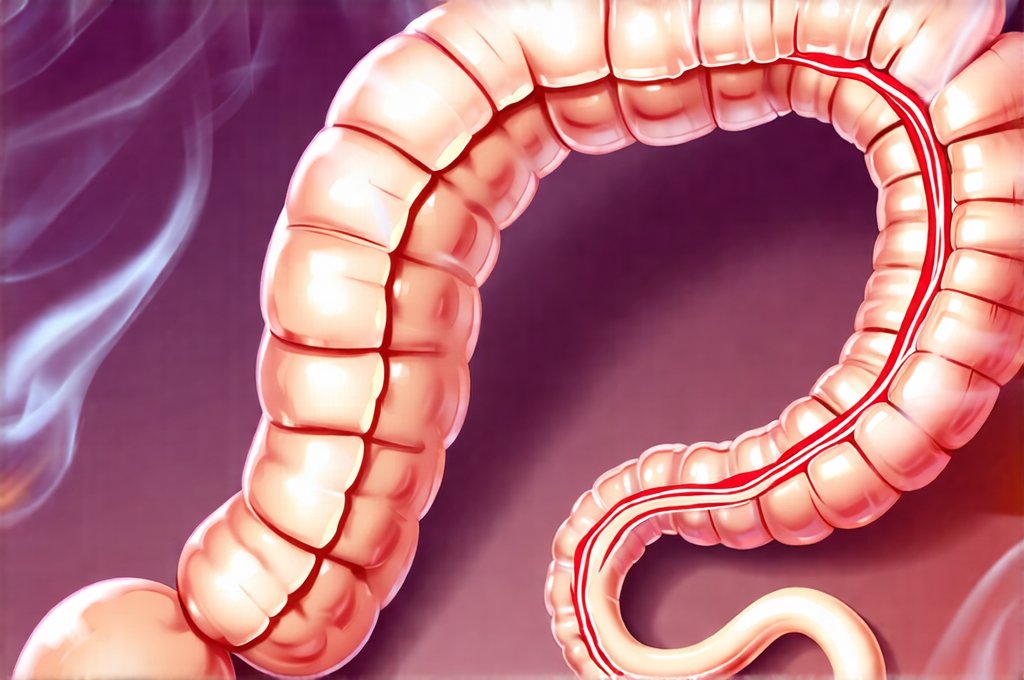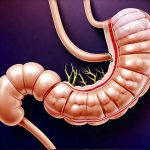Gas production is a completely normal physiological process – everyone experiences it! However, excessive gas, bloating, discomfort, and associated digestive issues can significantly impact quality of life. Often, the root cause isn’t simply “what” you ate, but how your body is processing that food. A growing area of research points to intestinal permeability, commonly known as “leaky gut,” as a significant contributor to amplified gas production in many individuals. Understanding the connection between these two can empower people to address digestive distress more effectively and explore potential avenues for improved gut health.
The digestive system is designed to meticulously break down food, absorb nutrients, and eliminate waste. This process relies on a delicate balance of microbial ecosystems, enzymatic activity, and a strong intestinal barrier. When this barrier becomes compromised – allowing undigested food particles, toxins, and bacteria to escape the confines of the gut – it can trigger inflammation and disrupt the normal fermentation processes that lead to gas formation. It’s not always about an excess of fermentable carbohydrates; sometimes, it’s about a breakdown in containment and regulation within the digestive system itself. This article will delve into how leaky gut exacerbates these issues.
The Intestinal Barrier & Its Compromise
The intestinal barrier is far more than just the lining of your intestines. It’s a complex, selectively permeable layer that acts as the gatekeeper between your digestive tract and the rest of your body. Think of it like a tightly woven fence: allowing essential nutrients to pass through while keeping harmful substances contained. This “fence” isn’t made of brick and mortar; it comprises several components working in harmony:
- Enterocytes: The intestinal cells themselves, forming the primary barrier.
- Tight Junctions: Protein structures that hold enterocytes together, controlling what passes through. These are crucial to gut integrity.
- Mucus Layer: A protective coating secreted by goblet cells, providing a further layer of defense.
- Gut Microbiota: The trillions of bacteria, fungi, viruses, and other microorganisms residing in your gut, contributing to barrier function and overall health.
When this carefully orchestrated system is disrupted – due to factors like chronic stress, poor diet (high in processed foods, sugar, and unhealthy fats), antibiotic use, or infections – the tight junctions loosen, creating gaps between enterocytes. This increased intestinal permeability allows substances that should remain within the gut lumen to “leak” into the bloodstream. This isn’t a sudden event; it’s often a gradual process, building over time.
The consequences of this leakage are far-reaching. The immune system recognizes these escaped molecules as foreign invaders and mounts an inflammatory response. Chronic inflammation is linked to numerous health issues, but in the context of gas production, it significantly alters gut function and microbial balance, creating a vicious cycle. A compromised intestinal barrier fundamentally changes the landscape of your digestive process. If you are experiencing symptoms that mimic other conditions, like heart problems, understanding gerd is also important.
How Leaky Gut Amplifies Gas Production
The leakage caused by increased intestinal permeability doesn’t just trigger inflammation; it directly impacts how food is fermented in the gut, leading to more gas. Normally, some fermentation happens – it’s a natural part of digestion. Fiber, for example, reaches the colon where bacteria ferment it, producing gases like hydrogen, carbon dioxide, and methane. This isn’t inherently problematic. However, when leaky gut occurs:
- Altered Gut Microbiota: The leakage promotes dysbiosis—an imbalance in the gut microbiome. Harmful bacteria can proliferate while beneficial bacteria decline. These harmful bacteria are often more efficient at producing gas from food.
- Undigested Food Particles: Larger, undigested food particles – due to impaired enzymatic activity or rapid transit time caused by inflammation – become readily available for fermentation by these altered microbial populations. This increases the substrate for gas production.
- Inflammation & Motility Issues: Chronic inflammation disrupts normal gut motility (the movement of food through the digestive tract). Slower motility allows more time for bacterial fermentation, and faster motility can lead to insufficient digestion. Both scenarios contribute to increased gas.
Essentially, leaky gut creates a perfect storm for excessive gas production: a compromised barrier, an imbalanced microbiome, undigested food particles, and disrupted digestive processes all working in concert. The resulting gases aren’t just uncomfortable; they can also contribute to bloating, abdominal pain, and even systemic symptoms as the immune system reacts. Many people wonder reactions could be a sign of healing, but understanding the root cause is important.
Addressing Leaky Gut & Reducing Gas
Addressing leaky gut isn’t about quick fixes; it requires a holistic approach focused on restoring intestinal barrier function and supporting a healthy microbiome. It is important to consult with healthcare professionals for personalized guidance. Here are some strategies often explored:
Dietary Modifications
Diet plays a pivotal role in both causing and healing leaky gut.
* Eliminate Inflammatory Foods: Reduce or eliminate processed foods, refined sugars, excessive alcohol, unhealthy fats, and food sensitivities (identified through elimination diets). Gluten and dairy are common triggers for many people.
* Focus on Gut-Healing Foods: Incorporate nutrient-dense foods that support gut health: bone broth (rich in collagen), fermented foods (yogurt, kefir, sauerkraut – probiotics), prebiotic-rich foods (onions, garlic, asparagus – feed beneficial bacteria) and fiber-rich vegetables.
* Prioritize Easily Digestible Foods: Temporarily reducing complex carbohydrates and focusing on easily digestible proteins and healthy fats can reduce the burden on the digestive system during the healing process. You may also consider a gentle cleanse to help reset your system.
Supplementation & Support
While dietary changes are foundational, certain supplements may provide additional support:
- L-Glutamine: An amino acid that provides building blocks for intestinal cells, helping to repair the gut lining.
- Probiotics: Introduce beneficial bacteria to restore microbial balance. Choose strains appropriate for your individual needs.
- Zinc Carnosine: May help protect and heal the stomach and intestinal lining.
- Digestive Enzymes: Can aid in breaking down food, reducing undigested particles available for fermentation.
Lifestyle Management
Stress management is arguably as important as diet. Chronic stress increases cortisol levels, which can negatively impact gut barrier function. Here’s how to mitigate this:
- Mindfulness & Meditation: Practices like mindfulness and meditation can help reduce stress and improve gut-brain connection.
- Regular Exercise: Physical activity promotes healthy digestion and reduces stress.
- Sufficient Sleep: Aim for 7-9 hours of quality sleep each night to allow your body to repair and rejuvenate. Prioritizing these lifestyle factors is critical for long-term gut health. Understanding dieting can also help you move forward with a healthy plan.
It’s important to remember that healing leaky gut is a journey, not a destination. It requires patience, consistency, and a personalized approach tailored to your individual needs and circumstances. While this information provides a starting point, seeking guidance from healthcare professionals—a doctor or registered dietitian specializing in gut health—is essential for developing an effective strategy. Remember that excessive gas can have many causes, so addressing the underlying factors is key. A tolerant gut takes time and dedication but is possible! And if you are planning events, consider how to build a party menu that works for everyone. Finally, remember spices can be enjoyed even with a sensitive gut!


















